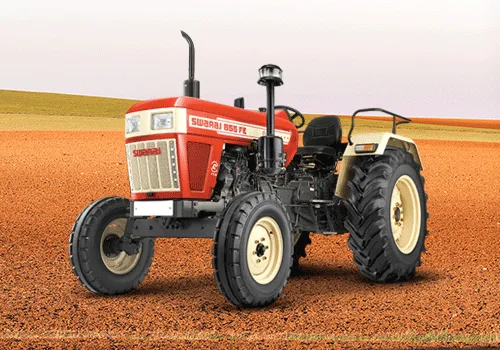Fuelled by diesel, tractors are the workhorse of modern agriculture serving to cultivate and sow land and perform many other operations. However, tractors are heavy-duty equipment and maintenance is critical to ensure efficient operation and long life. Well-maintained tractors cost much less to keep operationally and break less often, which correlates to better productivity. Regardless of how seasoned you are as a farmer, following best practices for tractor maintenance is a surefire way to ensure you get the most out of your investment.
Tractor Service Best Practices
Listen to Your Manufacturer
All tractors are sold accompanied by a manufacturer’s manual that details maintenance schedules and procedures specific to that tractor. Following these guidelines ensures the tractor will perform per expectations. Includes recommended oils, filters, service intervals based on your specific make and model.
Conduct Regular Inspections
Routine visual inspections are important for detecting issues early. Look for fluid leaks, bolts that are loose, belts that are worn and hoses that are damaged. Check tire pressure and tread wear, as both have a major influence on fuel economy and safety.
Keep the Tractor Clean
Dirt, mud, and other debris are attracted to various tractor components, resulting in corrosion and decreased effectiveness. Wash the car regularly, paying special attention to the undercarriage, engine bay, and radiator. Use a pressure washer when cleaning; nevertheless, do not spray the wash on delicate electrical components.
Check and Change Fluids
Fluid are the lifelines of any machine, and tractors are no different. Check engine oil, hydraulic fluid, coolant and transmission fluid levels regularly. Then every so often, usually specified in the manual, get them replaced and your tractor will run well. If it gets contaminated or low levels of fluid, it can damage the engine badly and reduce performance.
Replace Filters
The air, fuel and oil filters are crucial to the proper operation of the tractor. Dirty or clogged filters can decrease efficiency and put a strain on the engine. Change filters per the manufacturer’s recommendations, or more often if in a dusty or punishing environment.
Maintain the Battery
The battery is the unsung hero that makes the tractor run. Frequently inspect the terminals for corrosion, whether they are connected correctly and whether the battery is charged. For a tractor that can sit for months without being used, disconnect the battery or connect a trickle charger to preserve the life of the battery.
Lubricate Moving Parts
Lubricating moving parts like joints, bearings, and hinges, reduces friction and helps avoid wear and tear. Use high-quality grease and refer to the manual for lubrication points. Too much lubrication should be avoided as well, as it can attract dirt and debris.
Monitor Tire Condition
The tires bear the weight of the tractor so taking care of them is vital. Check your tire pressure regularly and fill to the recommended specifications. The tread, too, may tell you something — uneven or excessive wear could be a sign of alignment problems or improper inflation. Too few treads can make the tire unsafe to operate.
Inspect the Cooling System
Tractors experience overheating frequently, particularly if they are under a heavy load. Keep the radiator clean and clear of debris, and top up coolant levels regularly. Examine hoses and connections for wear and leaks, which can lead to overheating.
Store the Tractor Properly
Store the tractor in a dry, covered space when not using it to protect against weather-related damage. If there is no option for indoor storage, use a protective cover. When preparing a tractor for long-term storage, drain its fuel, disconnect the battery, and make sure the tractor is well-cleaned and lubed.
More Tips for Increasing the Life of your Tractor
Install Genuine Parts: Only use OEM parts for replacements and repairs.
Avoid Excessive Loading: Putting too much strain on the tractor can put excessive wear on its engine and other components. Tractor with limits specified
Train Operators: Make sure that all operators are trained on proper use of the tractor. Maintenance error can lead to needless wear and tear
Keep a Maintenance Log: A maintenance log helps schedule services and pinpoint any recurring issues.
Advantages of Correct Tractor Maintenance
Here are many benefits of properly maintaining your tractor. It improves fuel economy, prevents sudden breakdowns, and increases the tractor’s lifespan. In addition, a properly maintained tractor working in prime condition makes more work much faster. In the long run, these practices increase farm productivity and save time and money.
Conclusion
Never forget that tractors are the backbone of modern agriculture, and the maintenance of them is so important. That said, if you take a look at the tips and best practices above and follow them, you can keep your tractor in perfect condition for years! Not only does routine maintenance help to optimize performance, but it also brings peace of mind to users that their equipment will perform reliably when they need it the most. Just like your equipment, manage your tractor as if it is an essential member of your farm and it will repay you with better service over the years.






